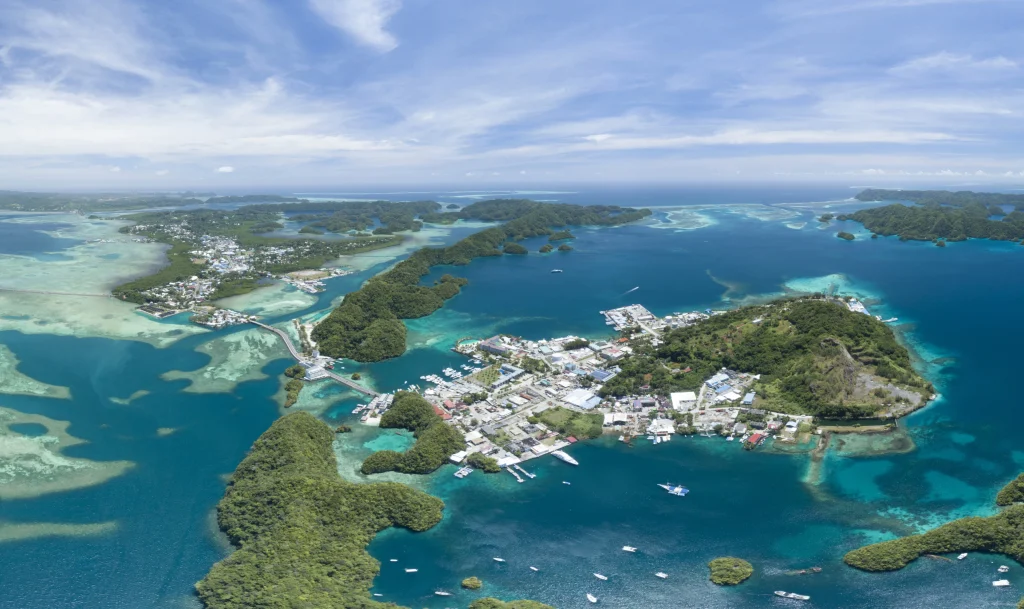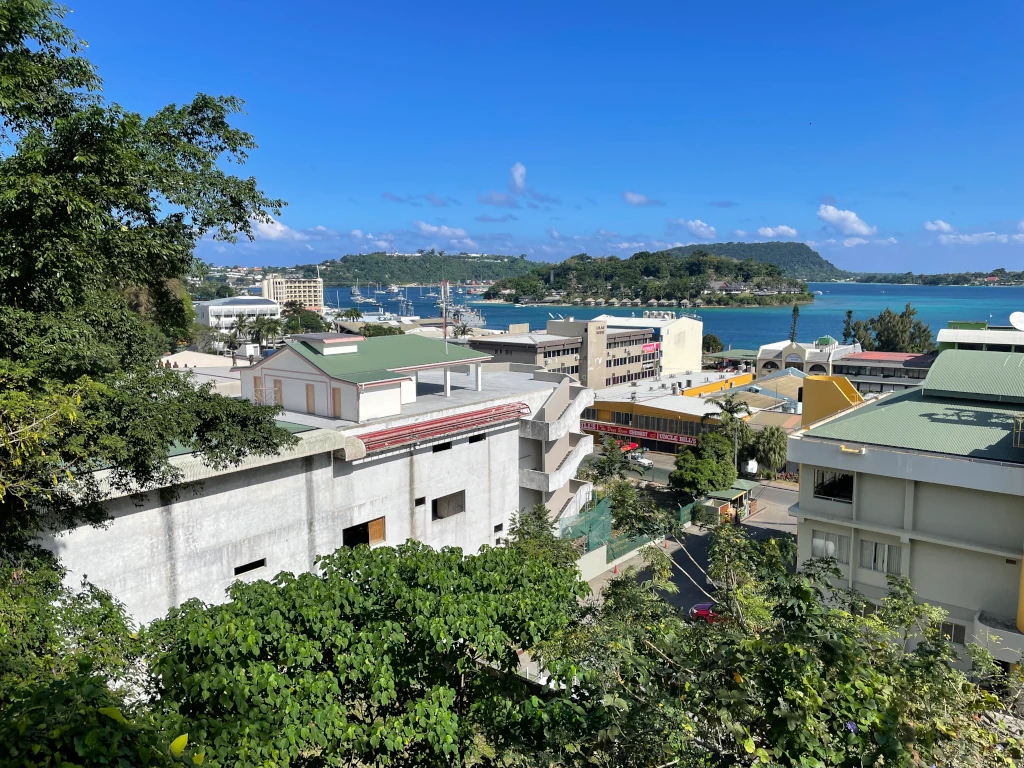In recent years, gambling and casino-related crimes have emerged as significant challenges for Pacific Island Countries and Territories (PICTs), warns the United Nations Office on Drugs and Crime Southeast Asia and the Pacific (UNODC).
According to a UNODC report on ‘Transnational Organized Crime in the Pacific’, organized crime networks exploit these sectors to launder money and facilitate other illicit activities, leaving far-reaching social and economic consequences in their wake.
From drug cartels to highly entrepreneurial Asian criminal syndicates, these networks leverage casinos and other hospitality sectors to mask their operations and infiltrate local economies.
Casinos, junkets, and hotel resorts have emerged as focal points for criminal groups eager to expand their influence in the Pacific.
Initially proliferating in Southeast Asia, this strategy has gained traction in several PICTs, where casinos are used to launder money, facilitate drug and human trafficking, and provide a base for cyber-enabled fraud and underground banking operations.
The casino industries in PICTs are often underregulated, characterized by weak oversight and low awareness of money laundering and related risks, warns the UN body. Criminal networks have exploited these vulnerabilities to navigate both licit and illicit economies, with several high-profile cases highlighting their ability to operate largely unchallenged.
This includes instances where organized crime leaders have successfully cultivated relationships with local influential figures to solidify their footholds.
Foreign criminal actors dominate much of the illicit activity in the Pacific, including in the gambling and hospitality industries.
These actors—ranging from drug cartels and outlaw motorcycle gangs (OMCGs) to Asian criminal networks with diversified business portfolios—utilize casinos to launder proceeds of drug trafficking, illegal resource extraction, and human trafficking.
The report noted, for example, how Wan Kuok Koi, a known senior figure of the 14K Triad – a transnational organized crime group, has been identified as deepening his criminal activities across the Pacific, particularly in Palau and other Southeast Asian nations, according to recent reports from law enforcement and international organizations.
Wan, also known as Broken Tooth, previously served a 15-year prison sentence in Macau for loan-sharking, money laundering and other crime charges, and was designated in December 2020 by the US Treasury’s Office of Foreign Assets Control (OFAC) as a leader of the 14K Triad.
He was accused of engaging in bribery and corruption through various companies, including the World Hongmen History and Culture Association, an organization with chapters worldwide, including in Palau.
The 14K Triad has reportedly used the World Hongmen History and Culture Association to conceal illicit activities under the guise of legitimate investment. Their business ventures have included cryptocurrencies, online casinos, real estate projects, and other enterprises, enabling the co-option of local elites to expand their influence.
In Palau, the individual spearheaded efforts to liberalize the casino industry and established the Palau-China Hung-Mun Cultural Association in 2019. He also secured a preliminary agreement for a 500,000-square-meter beachfront development in Angaur State, which included plans for luxury resorts and casino operations. However, public scrutiny of his criminal associations led to the collapse of the project within months.
In response to the growing threat, Palau issued Executive Order 424 in April 2019, providing a legal mechanism to refuse entry, detain, or deport foreign nationals deemed undesirable due to criminal affiliations. The Triad leader was deported, and a Special Joint Task Force was created to enhance border security and crack down on transnational crime.
Regional expansion and casino targeting

The influence of Asian organized crime extends beyond Palau, with the UNDOC stating that reports indicate that Chinese criminal networks have targeted Vanuatu’s casino industry, with one syndicate linked to drug trafficking, human trafficking, money laundering, and industrial-scale cyber-enabled fraud.
This group, led by another 14K Triad leader, reportedly uses casinos in the Mekong region as fronts for their activities.
Additionally, other Pacific nations have been targeted for major casino developments, often involving dubious investors. In Vanuatu, efforts were made in 2019 to secure the island’s fourth casino license with connections to controversial investors from Laos. These activities have drawn significant attention to the vulnerabilities of the Pacific’s casino and hospitality sectors, which are often underregulated and poorly monitored.
Another troubling example involves the collapse of Australian-based property group iProsperity. Its founder, an international fugitive, purchased Vanuatu’s Iririki Island casino resort for approximately $30 million in July 2019.
The individual is wanted for embezzling tens of millions of dollars from investors in a Ponzi scheme that caused an estimated $245 million in losses.
Reports reveal that, in 2020, the founder and the company’s Chief Financial Officer allegedly paid $1 million in multiple transactions to acquire Vanuatu passports through the country’s citizen-by-investment scheme.
Both were later implicated in Australia’s Star Entertainment and Crown Casino inquiries, where investigators discovered that millions of dollars from iProsperity funds had been laundered through prominent Australian casinos.
One of the most notable cases cited by the report involves the Commonwealth of Northern Mariana Islands (CNMI) and Imperial Pacific International (IPI) LLC, a subsidiary of the now-defunct Imperial Pacific International Holdings, which was delisted from the Hong Kong Stock Exchange in June 2024.
Following its exclusive casino license acquisition in August 2015, IPI opened a temporary casino, Best Sunshine Live, which quickly gained notoriety for its staggering cash flow. Founders of IPI previously controlled Hengsheng Junket, a major operator in Macau, which has faced allegations of human trafficking and forced labor in Southeast Asia.
Reports revealed that VIP bets at the casino amounted to approximately HK$105 billion ($13.5 billion) in just the first half of 2016. By September of that year, the casino recorded bets totaling a staggering $3.95 billion, all while operating at limited capacity.

The casino’s rapid rise has not been without controversy, with the FBI raiding IPI’s construction site in 2017 due to violations related to the workplace visa system and alleged human smuggling, following the tragic death of a construction worker. Subsequent investigations uncovered a web of corruption, leading to indictments of IPI executives on charges including racketeering and human trafficking.
In November 2023, a Beijing court convicted 14 individuals, including senior IPI executives, for their involvement in an organized criminal group and illegal casino operations. This ruling followed a series of legal challenges that began with the CNMI’s decision to suspend IPI’s casino license for non-payment of community fees.
IPI filed for bankruptcy in April 2024, with debts totaling approximately $165.8 million.
‘Experts familiar with the case of IPI in Saipan have indicated that the criminal network continues to operate through a newly established hybrid (land-based and online) casino operation based on a neighboring Island in CNMI despite significant disruptions caused by recent enforcement action’, the report suggests.
Corruption setting the stage
For the UN organization, the intensification of these crimes is compounded by high levels of corruption in some PICTs.
Corruption was also said to have permeated various sectors, from natural resource management to public administration and offshore banking, creating a fertile ground for organized crime. In some instances, local officials have been co-opted by criminal groups, facilitating the seamless integration of illicit operations into legitimate businesses.
Economic fragility in PICTs, exacerbated by geographic isolation, reliance on foreign aid, and the economic impact of the COVID-19 pandemic, has further opened the door for organized crime.
Transnational criminal groups present themselves as legitimate investors, leveraging favorable tax regimes and weak enforcement mechanisms to consolidate their operations. This hybrid approach not only masks their illicit activities but also exacerbates economic inequalities and diverts critical resources away from public services.
Casinos and other gambling venues have become attractive avenues for money laundering due to the significant cash flows and limited regulatory oversight. The allure of Foreign Direct Investment (FDI) through casino development has, in many cases, overshadowed the associated risks, allowing criminal networks to thrive under the guise of economic progress.

The impact of casino-related crimes extends beyond the economic sphere, deeply affecting social stability in PICTs, the UNODC report warns, with gambling addiction, financial hardships, and family breakdowns are common consequences in communities where casinos operate.
Additionally, these venues often become hotspots for drug trafficking, human trafficking, and other exploitative activities, undermining social cohesion and public trust.
Governance in the region faces mounting challenges as criminal networks infiltrate key sectors, compromising the rule of law and deterring legitimate investment. Corruption at senior levels has further hampered efforts to address these issues, leaving many PICTs vulnerable to exploitation.
To combat the impact of gambling and casino-related crimes, PICTs must strengthen regulations, enhance law enforcement capabilities, and promote regional cooperation. Improved anti-money laundering (AML) measures, alongside transparent governance of the casino sector, are critical steps. International partnerships can also play a role in monitoring and addressing transnational criminal activities tied to these establishments.



